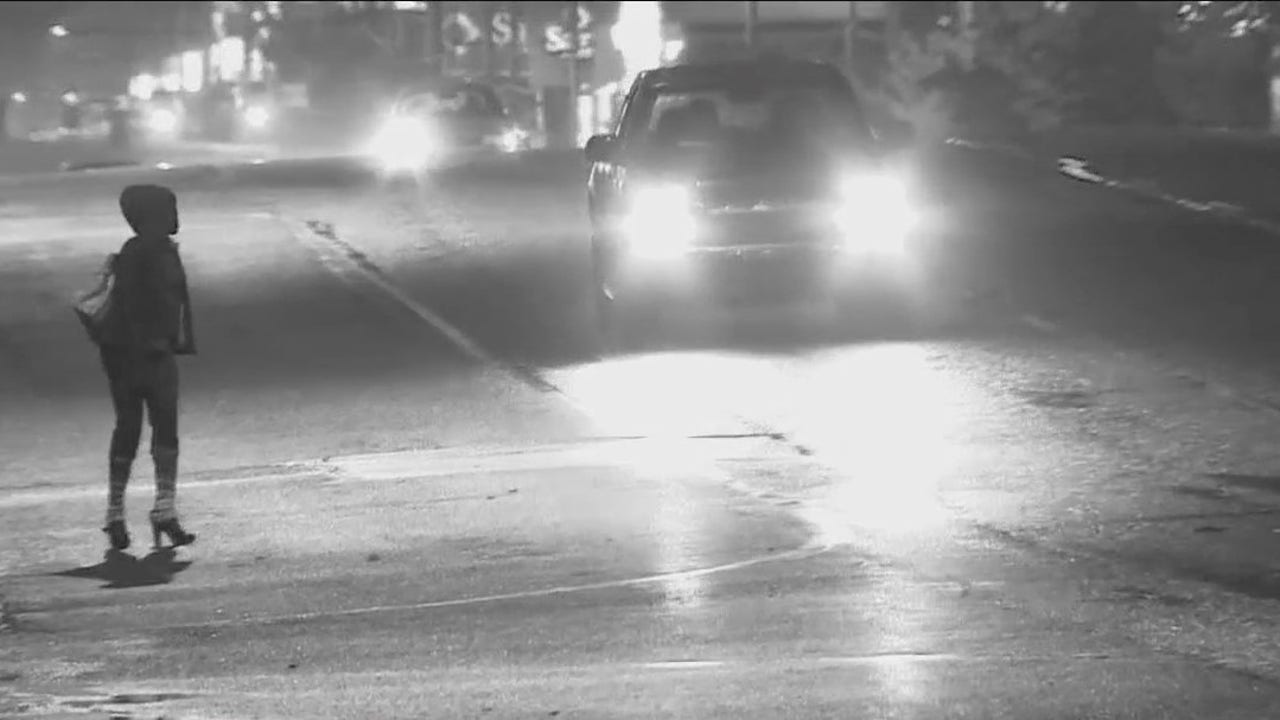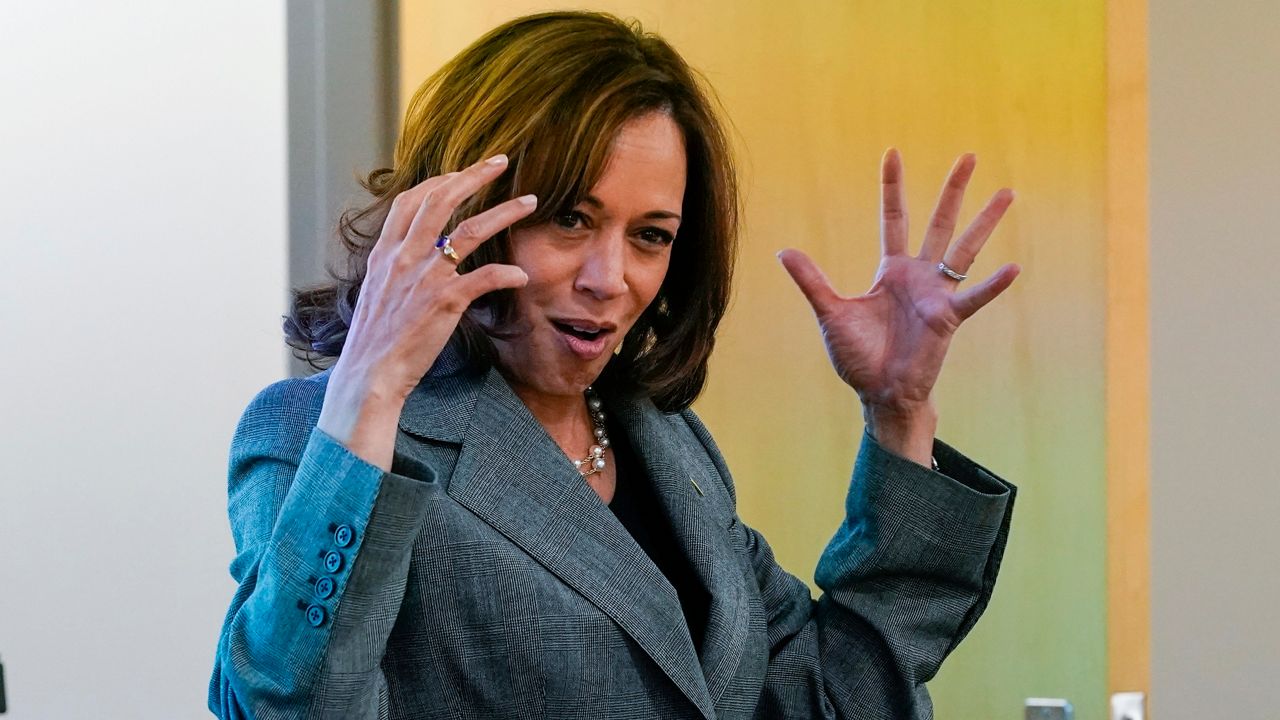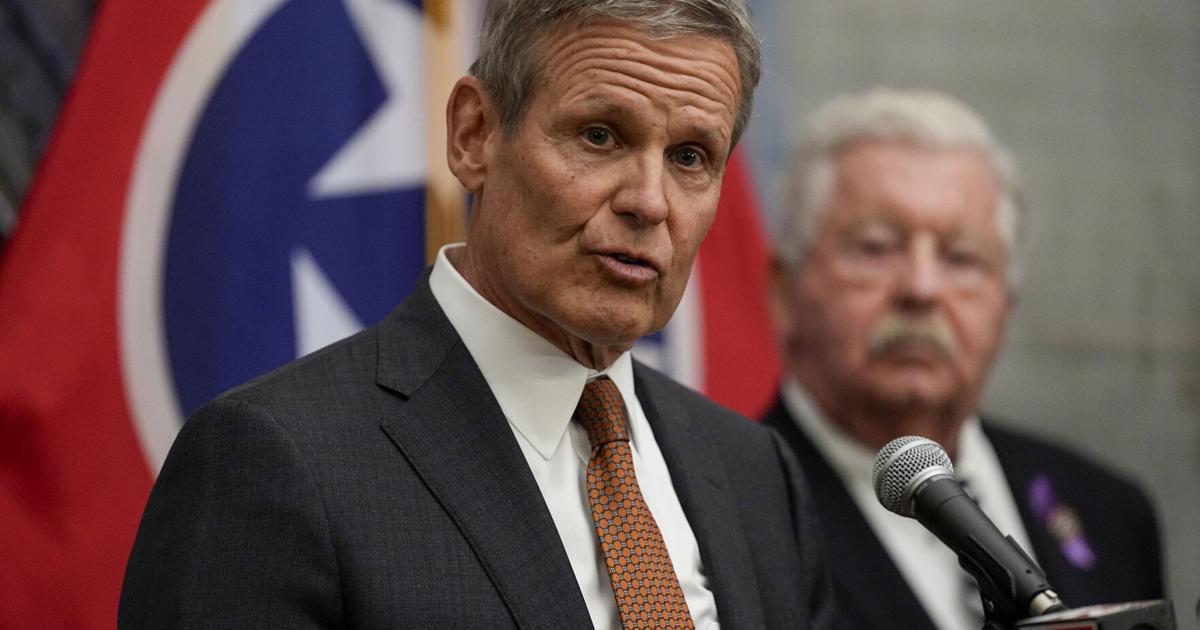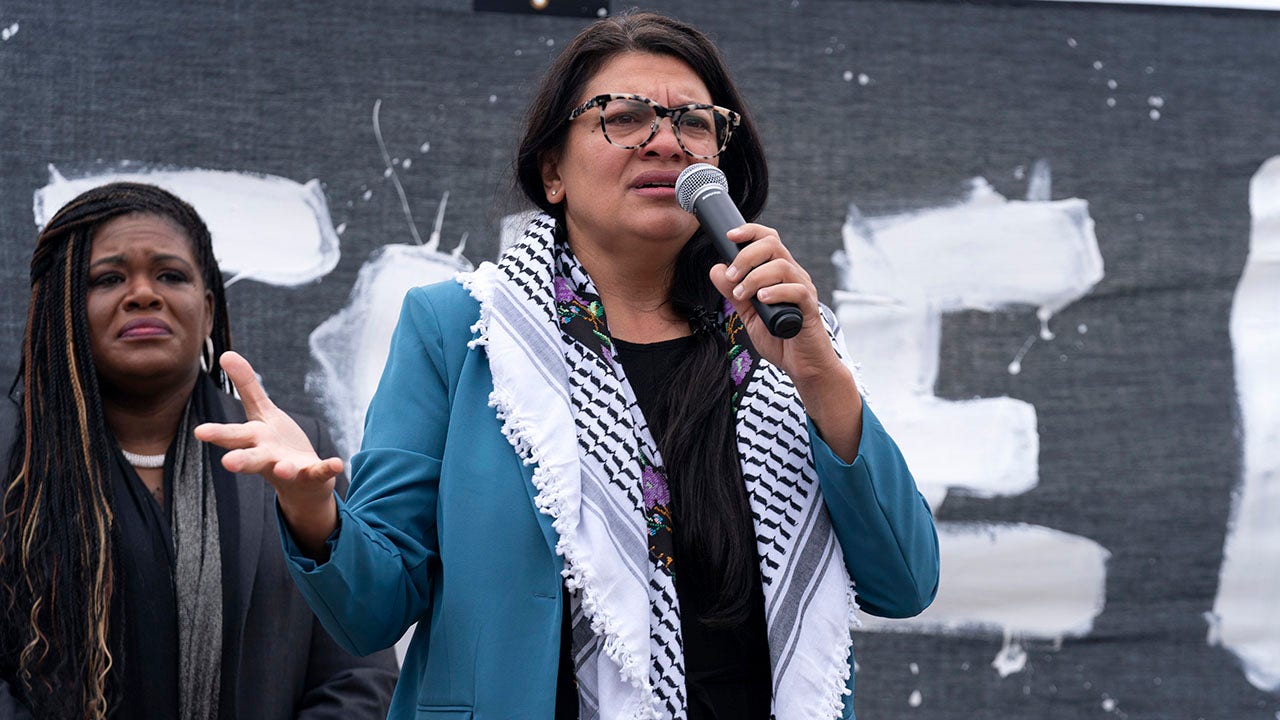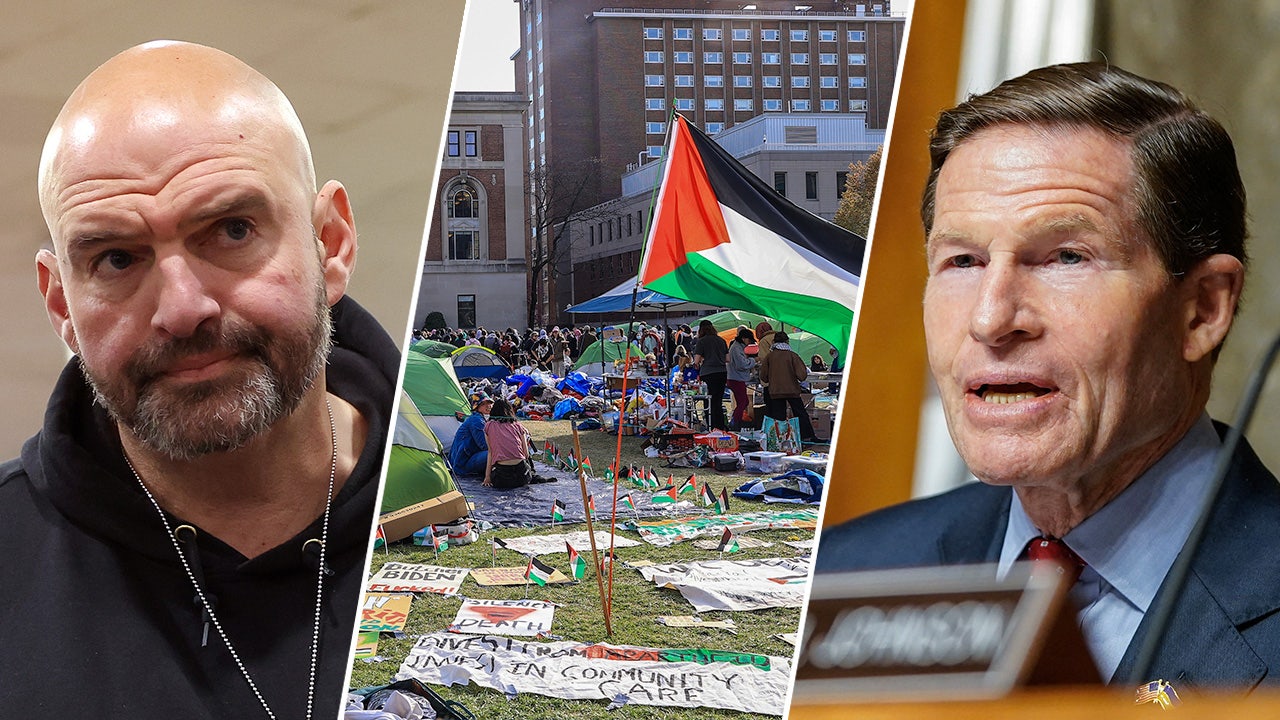CNN
—
When Jake Kleinmahon and his husband, Tom, decided to move back to New Orleans in 2018, they had plans to live there forever.
Kleinmahon, a pediatric cardiologist, earned his medical degree from Tulane University, and despite leaving the state to complete his fellowships, he said he felt drawn to Louisiana.
“At the time there was only one heart transplant doctor in the state of Louisiana,” he said, adding some children who needed heart transplants had to be transferred out of state. “I believe the kids in Louisiana should have the same world class health care as any other part of the United States.”
He accepted a job at a local children’s hospital as director of the pediatric heart transplant program.
Kleinmahon and his family started building their lives in New Orleans – they made friends, peeled crawfish with their kids, attended Mardi Gras parades and Saints games, and got involved in community groups.
But this past spring the Republican-led state legislature passed a series of controversial bills that targeted the LGBTQ community.
That’s when Kleinmahon said he started having difficult conversations with his family about leaving the home they love. When he explained to his six-year-old daughter that their family had no choice but to leave New Orleans, she said, “We do have a choice, just one of them isn’t a good one.”
The Kleinmahons join other LGBTQ families who are also facing the same choice. They say they no longer feel safe or welcomed in states that have passed laws targeting their community. Many have made the difficult decision to leave.
In 2023, more than 525 anti-LGBTQ bills were passed in 41 states, according to the Human Rights Campaign, an organization that advocates for the LGBTQ community. Of those bills, more than 220 explicitly targeted transgender people. As of June, 77 anti-LGBTQ bills had been signed into law.
Many of the laws enacted have been met with legal challenges from advocacy groups and LGBTQ families. Some have been blocked by judges while the legal battles play out in court.
In Louisiana, Kleinmahon said he lobbied against the laws, calling state lawmakers and writing letters to the state’s senate education committee. But he reached a breaking point when Republican state lawmakers walked out of a senate education committee meeting as opponents of what critics call a “Don’t Say Gay” bill were discussing why it was harmful.
“It really showed that they just don’t care,” Kleinmahon told CNN. “They are not going to support our children; they are not going to support our family. And although we love New Orleans and we love Louisiana with all of our hearts, we can’t raise our children in this environment.”
Kleinmahon said he was also receiving hate mail at his job from people condemning him for being gay and saying he needed to “find Jesus.”
Louisiana Democratic Gov. John Bel Edwards vetoed three bills, including one that banned gender-affirming care for most transgender minors, and HB 466, the so-called “Don’t Say Gay” bill that prohibited teachers from discussing sexual orientation or gender identity in class.
The state legislature overturned Edwards’ veto of the gender-affirming care ban and the new law will go into effect in January.
Terry Schilling, president of the American Principles Project, a conservative advocacy group, said his organization backs these laws out of concern that families are being exploited by doctors and corporations that offer puberty blockers and other gender-affirming care.
Schilling said, as a parent, he also believes sexual orientation and gender identity are “intimate and serious” topics that should not be left to teachers.
“We need to be careful with the content that we are putting in front of children,” Schilling said. “I just don’t want sexuality being pushed in the classroom.”
Tony Rothert, an attorney for the American Civil Liberties Union of Missouri, said laws targeting gender-affirming care are “governmental overreach” and encroach on families personal choices.
In Missouri, a law banning gender-affirming care for most transgender children took effect on August 28, unless they were already receiving these treatments prior to that date. The ACLU of Missouri had filed a request to block the law from taking effect as their legal battle played out in court, but a judge ruled against the group in August.
Rothert said if a judge had granted their request, it would have given families with transgender children more time to seek healthcare in other states or make plans to move.
“It’s unfortunate for Missouri that we are driving families away,” Rothert told CNN.
The Human Rights Campaign has called this one of the worst years on record for states passing laws targeting the LGBTQ community.
Cathryn Oakley, senior director of legal policy for the group, said while the organization hasn’t been able to track the number of families fleeing states nationwide, she has spoken with many who are planning to move or have already moved.
Oakley said it has been “painful” for a lot of families to decide whether to uproot their lives.
“It’s at this point that they are finding the place they live to be unlivable,” Oakley said. “This is truly about pushing people out of public life.”
Katherine Sasser said Missouri’s ban on gender-affirming care for minors left her no choice but to move her family to Denver earlier this summer.
Sasser said that law meant her 12-year-old transgender daughter would not be able to get puberty blockers – which help delay unwanted physical changes that don’t align with someone’s gender identity.
And with her daughter likely needing puberty blockers by next year, Sasser said she didn’t have time to wait and see if the legal challenge against the law would succeed.
“The broader state started to feel more hostile,” Sasser said. “We started having conversations as a family because we knew that my daughter’s healthcare could be taken away.”

But relocating across the country hasn’t been an easy decision, LGBTQ families told CNN.
Sasser, who identifies as queer, said she now feels at ease living in a state where her daughter can legally get the healthcare she needs. Still, Sasser said it was difficult leaving the Columbia community she had grown to love.
She graduated from the University of Missouri, taught for nine years in the school district, raised her three children there and served two years on the school board.
But when she finally decided to leave, Sasser said she was grateful that not only her partner but also her ex-husband and his wife agreed to move to Denver for the sake of their family.
“It’s hard, but we are going to be OK,” Sasser said. “But I worry for the families and kids who aren’t.”
On his last night in New Orleans, Kleinmahon said he had mixed emotions as he laid on a mattress in an empty house.
“It was a feeling of a little bit of anger, combined with sadness, combined with being overwhelmed,” he said. “But also, really excited for the future.”
“We feel like we can be ourselves in a state that supports our family,” he added.
In August, Kleinmahon decided to move his family to Long Island, New York, where he took a job at another children’s hospital developing a heart transplant program.
Kleinmahon said he worries his departure will leave a void in the Louisiana healthcare system. There are now only two pediatric cardiologists who manage heart transplants in the state, and they will be expected to serve the same number of patients, he said.
“That is going to affect care,” Kleinmahon said, adding that “the absolute hardest part is me saying goodbye to my patients.”
“I don’t know how many families in the last couple weeks have just melted into my arms in tears when I tell them that I’m leaving.”



